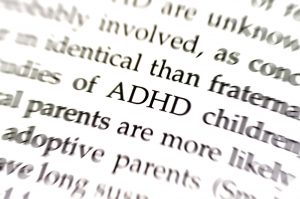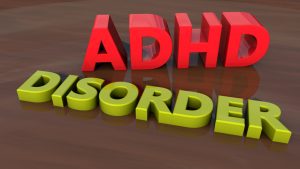ADHD can have negative effects in the workplace and cost companies income and also cost employees their jobs. It is important to understand if one has ADHD so as to correct the issue, but the litany of issues associated with ADHD can all be negative at any workplace. Whether factory or office, individuals need to be focused and disciplined in their task and responsibilities. This involves time management, focus, restraint from distractions and the ability to work with others. ADHD can take this away and cause chaos in the work place.

The article, “Adult ADHD and the Workplace” by Russell Ramsay takes a closer look at how ADHD can manifest in the work place and create a non profitable situation. He states,
“The workplace, including at-home parents, self-employment, and volunteer jobs, comes with performance expectations. A lifetime history of ADHD is associated with various difficulties organizing and following through on various job-related tasks and managing frustrations that result in an increased likelihood of poor work evaluations and performance improvement plans, conflicts with supervisors and co-workers, and more frequent job changes and job dismissals.”
“Adult ADHD and the Workplace”. Ramsay, R. (2023). Psychology Today
To read the entire article, please access here
Hence forgetfulness, distractions, messiness, tardiness, emotional frustration and lack of focus on the task at hand can cripple an employee with ADHD. It is so important if many of these qualities manifest to receive screening. Many adults are shocked to discover that many of their worst traits are actually ADHD. In the workplace, it is critical to control these symptoms to allow one to competently work at a high level and succeed.
Living with Attention-Deficit/Hyperactivity Disorder (ADHD) can present unique challenges in the workplace. ADHD is a neurodevelopmental disorder that affects one’s ability to pay attention, control impulses, and manage time effectively. However, with the right support and understanding, individuals with ADHD can thrive in various career paths. In this article, we will explore the best career options for individuals with ADHD, considering their skills, strengths, and the challenges they may face.
Challenges Faced by Individuals with ADHD in Traditional Careers

Many traditional careers require individuals to focus for extended periods, follow strict routines, and meet deadlines consistently. For individuals with ADHD, these expectations can be overwhelming and may lead to feelings of frustration and underperformance. Additionally, the highly structured nature of these careers may not allow individuals with ADHD to fully utilize their creativity and problem-solving skills.
The Importance of Finding the Right Career Path
Finding the right career path is crucial for individuals with ADHD to thrive in the workplace. It is essential to recognize that everyone is unique and has different strengths and weaknesses. By aligning their interests, skills, and ADHD-related strengths with the demands of a particular career, individuals with ADHD can increase their job satisfaction and overall success.
Identifying Skills and Strengths of Individuals with ADHD
Although individuals with ADHD may face challenges in certain areas, they also possess several valuable skills and strengths. These include creativity, out-of-the-box thinking, high energy levels, and the ability to hyperfocus on tasks of interest. By identifying and leveraging these strengths, individuals with ADHD can excel in careers that allow them to utilize their unique abilities.
Alternative Career Paths for Individuals with ADHD
While traditional careers may not be the best fit for individuals with ADHD, alternative career paths offer opportunities for success. Fields such as graphic design, writing, and photography allow individuals with ADHD to express their creativity and work in environments that embrace their unique perspective. These careers often provide the flexibility and variety that can help individuals with ADHD stay engaged and motivated.
Creative and Entrepreneurial Careers for Individuals with ADHD
Entrepreneurship and creative careers can be particularly well-suited for individuals with ADHD. The ability to think outside the box, adapt quickly to change, and take risks can be advantageous in these fields. Starting a business or pursuing a career in the arts, music, or media production allows individuals with ADHD to cultivate their creativity and build a career that aligns with their interests and strengths.
Remote Work and Flexible Job Options for Individuals with ADHD
Remote work and flexible job options have become increasingly popular in recent years, and they can be a great fit for individuals with ADHD. These roles offer the freedom to work in environments that minimize distractions and allow for self-paced work. Remote work also eliminates the stress of commuting and provides individuals with ADHD the flexibility to manage their schedules effectively.
Resources and Support for Individuals with ADHD in the Workplace
Numerous resources and support systems are available to help individuals with ADHD succeed in the workplace. Support groups, counseling services, and ADHD coaches can provide valuable guidance and help individuals develop strategies to manage their symptoms effectively. Additionally, workplace accommodations such as flexible schedules, noise-canceling headphones, and task management tools can create a more inclusive and supportive environment for individuals with ADHD.
ADHD Consultants certified through AIHCP can offer coping strategies for those with ADHD.
Tips for Success in the Workplace for Individuals with ADHD
To thrive in the workplace, individuals with ADHD can implement various strategies. Breaking tasks into smaller, manageable parts, utilizing visual aids and reminders, and creating a structured routine can enhance focus and productivity. It is also important to communicate openly with supervisors and colleagues about ADHD-related challenges and seek their understanding and support. Taking regular breaks, practicing self-care, and maintaining a healthy work-life balance are crucial for overall well-being.
Conclusion
Navigating the workplace with ADHD may present unique challenges, but it is certainly possible to find the perfect career that aligns with one’s strengths and interests. By understanding ADHD, recognizing individual skills and strengths, exploring alternative career paths, and utilizing available resources and support, individuals with ADHD can thrive in the workplace. With the right strategies and a supportive environment, individuals with ADHD can unlock their full potential and achieve success in their chosen careers.

ADHD Consultants can help individuals facing ADHD in the workplace. It is important to help teach those with ADHD how to better cope with issues. Some may require medication but many can be coached to identify triggers or issues associated with ADHD and how to cope and better stay on track. Please also review AIHCP’s ADHD Consulting Program and see if it meets your academic and professional goals.
Additional Resources
“Common Workplace ADHD Problems and How to Fix Them”. Brennan, D. (2022). WebMD. Access here
“The silent struggles of workers with ADHD”. Brooks Olson, H. and Turits, M. (2022). BBC. Access here
“9 to 5 with ADD: Practical Work Strategies for Clever ADHD Brains”. Shankman, P. and Hallowell, E. (2018) ADDitude. Access here
“An employer’s guide to ADHD in the workplace”. Scottish ADHD Coalition. Access here











